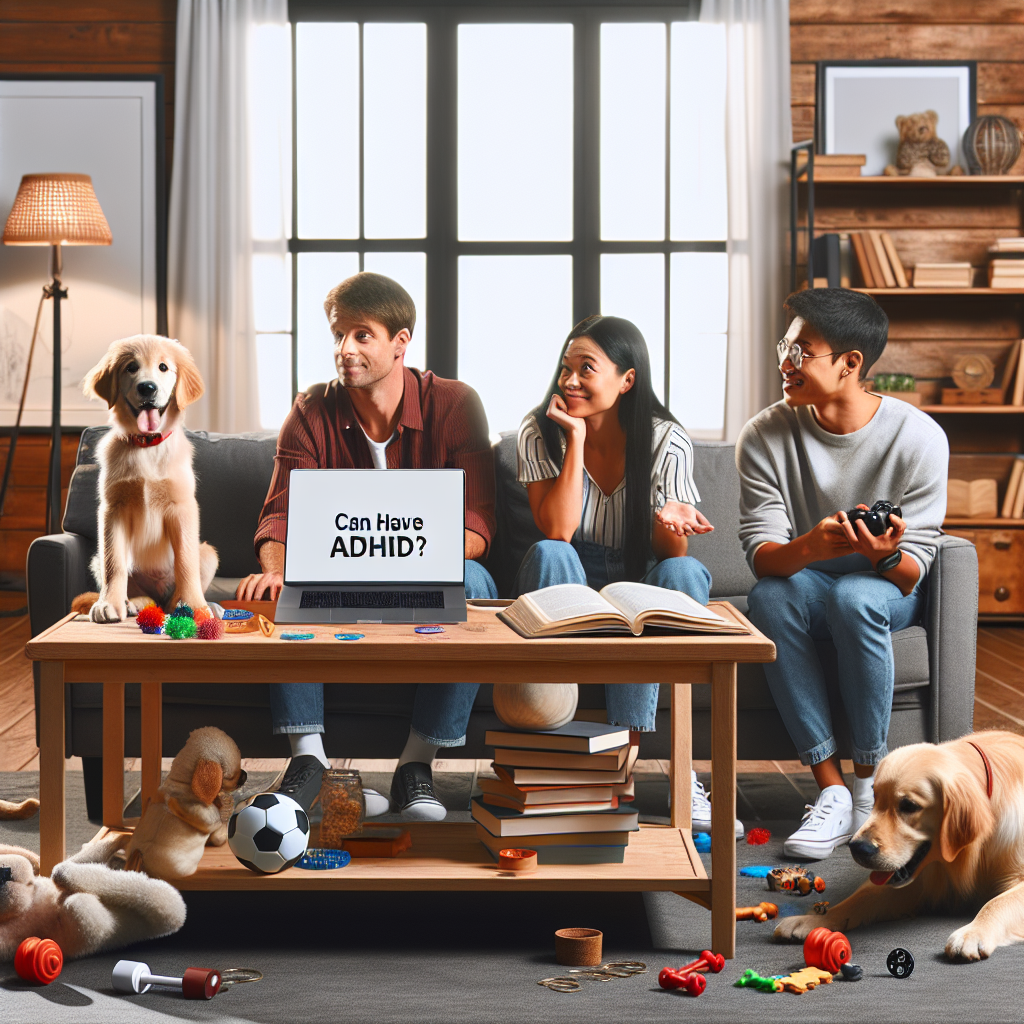Can Dogs Have ADHD? Understanding Attention Deficit Hyperactivity Disorder in Dogs
Attention Deficit Hyperactivity Disorder (ADHD) is a term commonly associated with humans, especially children. It is characterized by symptoms such as inattention, hyperactivity, and impulsivity. As pet owners become more knowledgeable about canine behavior, many wonder if dogs can exhibit similar traits or if they can be diagnosed with ADHD. While the concept of canine ADHD is still debated, there are important considerations regarding dog behavior and mental health.
Understanding Dog Behavior
Before delving into the specifics of canine ADHD, it is essential to understand typical dog behavior. Dogs can display an array of temperaments and activity levels depending on their breed, age, and individual personality. Common behaviors that may resemble ADHD symptoms include:
- Hyperactivity: Some breeds, such as Border Collies or Jack Russell Terriers, are naturally energetic and require significant physical and mental stimulation.
- Impulsivity: Dogs may act without thinking, such as jumping on people or chasing after distractions.
- Inattention: Some dogs may seem easily distracted, failing to focus on commands or tasks.
These behaviors can stem from various factors, including genetics, training practices, and the dog’s environment.
Can Dogs Actually Have ADHD?
Currently, there is no formal diagnosis of ADHD in dogs as there is in humans. The symptoms associated with ADHD may overlap with other behavioral issues that can affect dogs. Conditions such as:
- Separation Anxiety: Dogs suffering from separation anxiety may exhibit hyperactive or destructive behaviors when their owners leave.
- Fear and Anxiety: Fearful dogs can become hyperactive or distracted, reacting to stimuli in their environment.
- Lack of Socialization or Training: Poorly trained or unsocialized dogs may display attention-seeking behaviors or impulsivity.
Veterinarians and animal behaviorists often emphasize the differences between human ADHD and what might be perceived as similar behaviors in dogs. The absence of structured psychological evaluations for dogs means more research is needed to understand canine behavior fully.
Signs That May Resemble ADHD
While there is no official diagnosis for canine ADHD, pet owners can look for signs that their dogs may be struggling with behavioral issues. Signs that might resemble ADHD include:
- Inability to settle down: If your dog constantly paces, barks, or seems unable to rest.
- Destructive behavior: Unexplained chewing, digging, or other unwanted behaviors might indicate boredom or anxiety rather than ADHD.
- Lack of focus during training: Dogs that show a consistent inability to follow commands or obey cues might need more structured training or mental stimulation.
Addressing Behavioral Issues
If you suspect that your dog displays behaviors that resemble ADHD, it is wise to consult with a veterinarian or a certified animal behaviorist. They can help identify underlying issues and recommend appropriate strategies. Here are some approaches that may help:
- Regular Exercise: Ensuring your dog gets enough physical and mental stimulation can alleviate hyperactive behaviors.
- Consistency in Training: A consistent training routine can help your dog learn commands and focus better.
- Structured Environment: Establishing a routine provides a sense of security for many dogs, helping them feel more settled.
- Mental Stimulation: Engaging your dog in puzzle toys, interactive games, or training exercises can help keep them mentally stimulated.
- Behavior Modification Techniques: Techniques like positive reinforcement can encourage desired behaviors and discourage unwanted ones.
Conclusion
While there is no formal recognition of ADHD in dogs, understanding canine behavior is crucial in addressing concerns about impulsivity and hyperactivity. The similarities between certain dog behaviors and ADHD symptoms in humans prompt further exploration into how we perceive and understand our pets’ mental and emotional health. As we continue to study animal behavior, ongoing developments will hopefully provide more clarity for pet owners and insights into enhancing the well-being of their furry companions.





